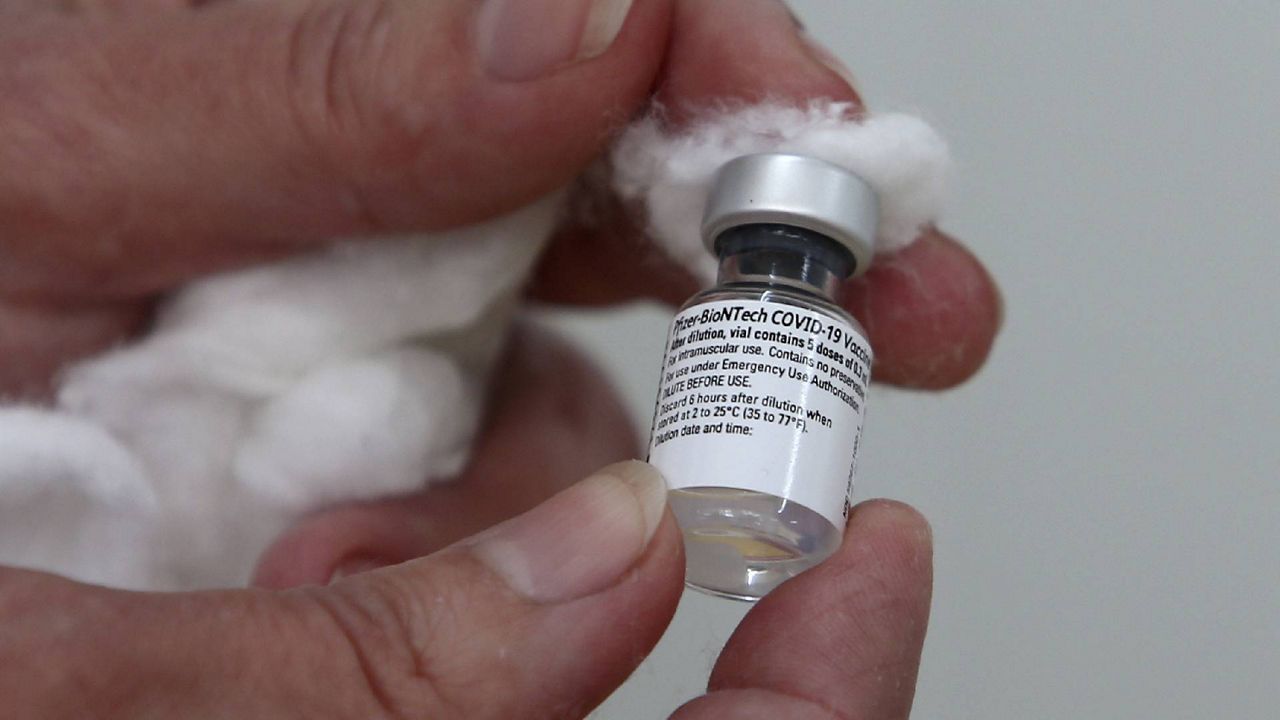Early studies show that the COVID-19 vaccines may reduce spread of the virus as well as preventing the disease itself, Dr. Anthony Fauci, President Joe Biden’s chief medical adviser, said in a briefing Wednesday.
A lingering question about the Pfizer and Moderna vaccines being administered in the U.S. is whether they prevent transmission of the virus from one person to another once someone has gotten the shot, in addition to preventing that person from getting sick.
On Wednesday, Dr. Fauci said that early studies of transmission are promising.
“There have been some studies that are pointing into a very favorable direction, that will have to be verified and corroborated by other studies,” Fauci said.
Fauci specifically referred to a Spanish study that looked at people’s viral load, or the amount of virus present in their body. Researchers found that viral load was directly linked to transmission. In other words, the lower the amount of virus present, the less likely a person is to transmit the disease.
Another Israeli study cited by Fauci connected the dots to vaccines. Researchers in that study followed people who had been fully vaccinated and then infected with COVID-19 nearly two weeks later.
They found that those people who got the virus had “significantly reduced viral loads, potentially affecting viral shedding and contagiousness as well as severity of the disease.”
“There was a markedly diminished viral load in those individuals who were vaccinated,” Fauci explained Wednesday.
His colleagues at the National Institutes of Health are working with Moderna to run additional studies of transmission among vaccinated people, and Pfizer is planning to look into it, too.
Dr. Fauci’s takeaway? Vaccines aren’t just important for the person who gets the shot, but they also have “very important implications from a public health standpoint, for interfering and diminishing the dynamics of the outbreak,” he said.
President Biden, Dr. Fauci and other officials have reiterated that the vaccine is safe and that Americans should get the shot as soon as they’re eligible, especially in the face of new, faster-spreading variants of the virus.
Earlier this month, the Centers for Disease Control and Prevention announced a change to its guidance for vaccinated Americans, who now do not have to quarantine if exposed to someone with COVID-19. The change raised the question of whether the CDC was counting on the fact that vaccinated people would not transmit the virus to others.
More than 55 million Americans had received at least one dose of the vaccine as of Tuesday, though the U.S. has secured enough doses for 300 million Americans to be delivered by the end of July.
This week, health officials announced an increase in weekly allocations of vaccine doses, and they now plan to send 13.5 million doses per week to states, a 57 percent increase since President Biden took office.



